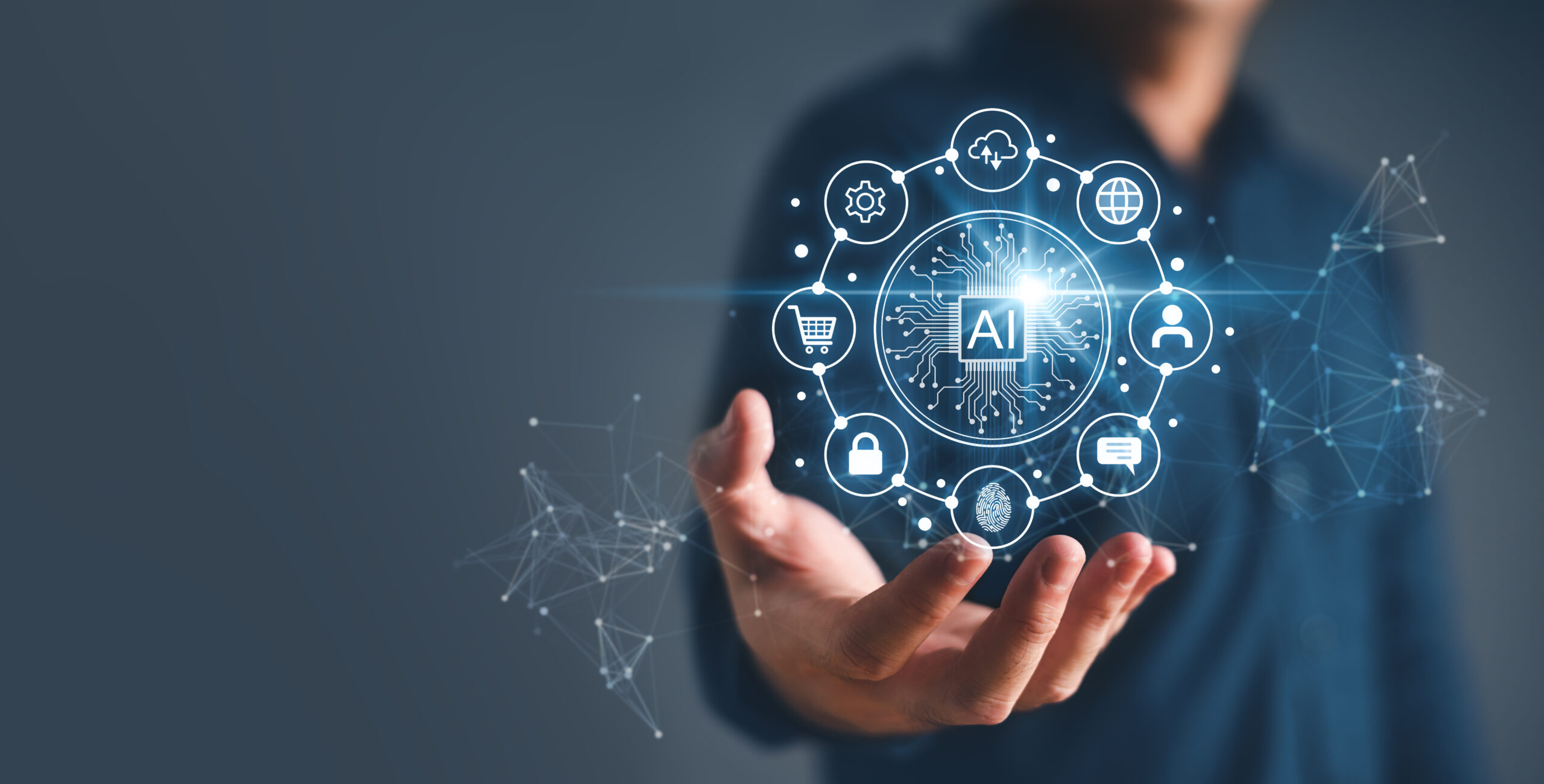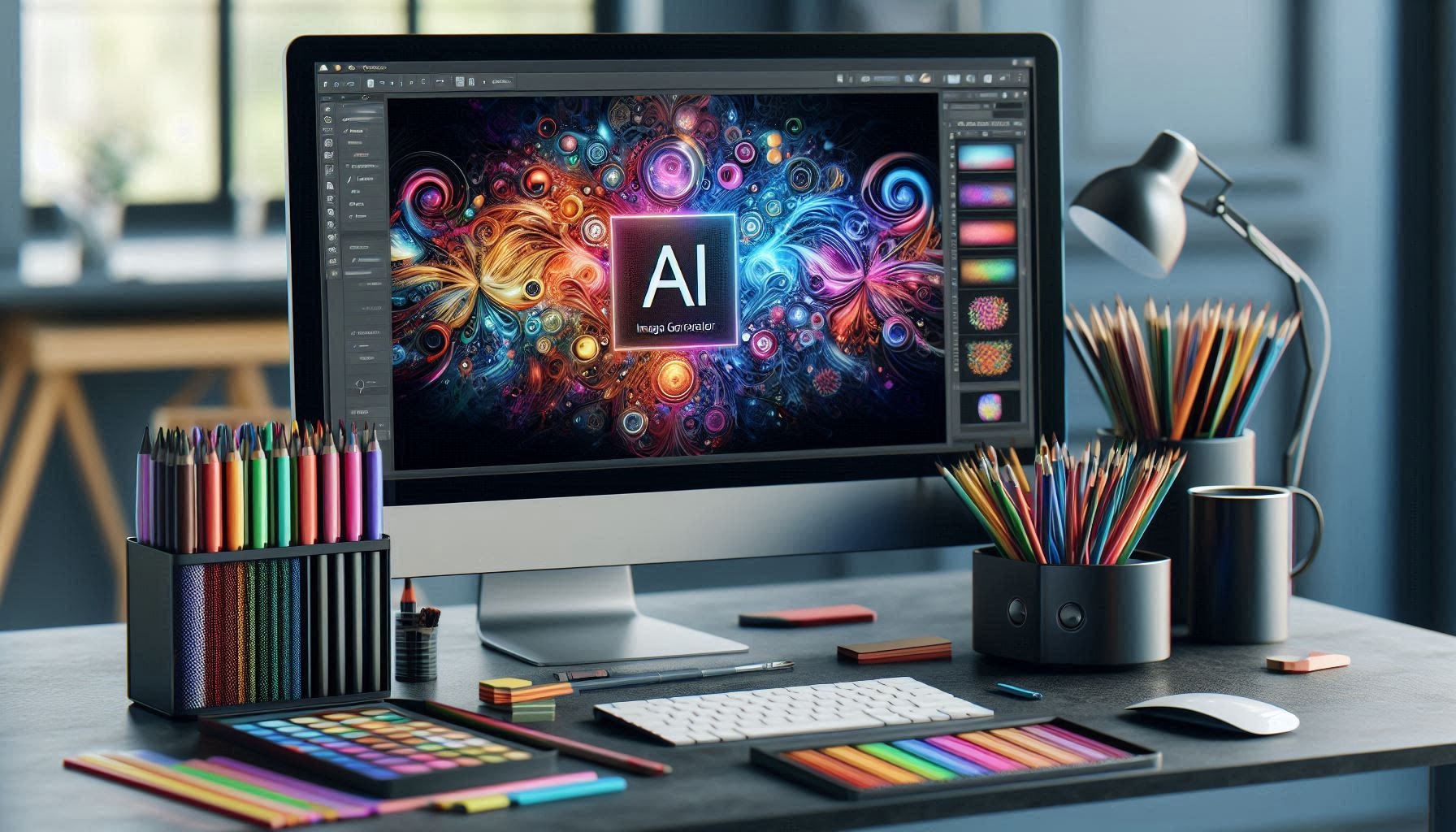Artificial intelligence (AI), when viewed in the context of business, is one of the most transformative technologies. It can automate routine processes, but it also provides deep insights via data analysis. We can therefore say that AI is reshaping the industry and driving innovation. This article examines the impact of AI in modern business practices. We will highlight its challenges, benefits, and prospects.
Table of Contents
AI for Business: Transforming business operations
AI has revolutionized businesses’ operations through the automation of routine tasks. This helps to increase efficiency and productivity. AI-driven robotics are used in manufacturing to perform repetitive tasks quickly and accurately. They reduce human error and costs. AI algorithms, for example, optimize supply chain management through predicting demand, managing inventories, and identifying inefficiencies. This ensures timely delivery and cost savings.
AI-powered virtual assistants and chatbots offer 24/7 customer service in the world of customer care. These chatbots are essentially handling a variety of questions so that employees can concentrate on more complex problems. These AI tools use Natural Language Processing (NLP), which is a form of artificial intelligence, to understand customer questions and provide a response. In fact, these tools are increasing customer satisfaction and engagement.
Artificial intelligence can enhance decision-making in business
AI’s capability to analyze massive amounts of data and extract useful insights is revolutionizing decision-making across industries. AI-powered analytics can help businesses gain a competitive advantage. AI algorithms, for example, analyze consumer behavior, market trends, and sales data. They can then make recommendations on marketing strategies, product developments, or pricing models.
How can AI be used by corporations? AI is used by financial institutions to detect fraud, assess credit risk, and optimize investment portfolios. AI models can predict market trends and make investment decisions by analyzing historical data. This capability is leading to improved financial outcomes. AI is used in healthcare to diagnose diseases, predict patient outcomes, and personalize treatment plans. These skills improve patient care while reducing costs.
Drive Innovation
AI is a catalyst for innovation. They enable businesses to create new products, services, and business models. AI is driving advancements in the automotive industry. These vehicles have the potential to revolutionize transportation. AI is being used by companies like Tesla and Waymo to create self-driving vehicles. These cars are able to navigate in complex environments and improve safety.
AI is transforming retail through personalized shopping. Amazon and other e-commerce giants use AI algorithms to suggest products based on the browsing and purchase history of their customers. This level of customization increases customer satisfaction and sales. Artificial intelligence systems for business logistics and delivery ensure a faster and more accurate order completion.
Ethical and Challenges Considerations
The adoption of AI in business is not without its challenges, and it also has ethical implications. The potential loss of jobs as a result of automation is one of the main concerns. AI can be a great tool for increasing efficiency in the business world, but it is also a danger to repetitive and routine tasks. This challenge must be addressed by businesses. You may be asking, What can they do? You may ask, what can they do?
Data privacy and security are also significant challenges. AI systems are dependent on massive amounts of data in order to work effectively. In society, however, there are concerns over how these data are collected, stored, and, of course, utilized. To protect sensitive information, businesses must adopt robust data protection procedures. They must also comply with regulations, such as the General Data Protection Regulation.
Ethics also plays a key role in AI adoption and business. Biased AI algorithms can produce unfair and discriminatory results. Biased AI models can, for example, cause racial and gender inequalities in the hiring process. Businesses must make sure that their AI systems have transparency, fairness, and accountability. This includes regularly auditing AI algorithm, addressing biases, and involving a diverse team in AI development.
AI Business: The Future
AI’s future in business looks promising. It is committed to continuous improvement to drive further change. Integration of AI and other emerging technologies, such as Internet of Things (IoT), Blockchain, and 5G, is one of the major trends. This convergence will allow for the creation of intelligent ecosystems. In this environment, devices can communicate and work together seamlessly to enhance efficiency and innovation.
How to use AI for corporations?
AI will play an important role in efforts to achieve sustainability. AI is being used by businesses to reduce waste, optimize energy consumption, and create sustainable products. AI-powered systems monitor energy consumption in real time. It’s about identifying energy-saving opportunities. AI technology is used in agriculture to optimize irrigation and monitor crop health. Predicting yields is possible with AI technologies. They will therefore be promoting sustainable agricultural practices.
The democratization of AI will also empower small and mid-sized businesses (SMEs). AI is becoming more affordable and accessible thanks to the development of AI platforms and tools. SMEs can now take advantage of its advantages. This democratization is expected to drive innovation, competitiveness, and a more inclusive environment across industries.
AI and Business: Conclusion
Artificial intelligence has unquestionably transformed modern business practices. Moreover, it is driving efficiency and innovation. AI transforms industries, from automation to deep insights gained through data analysis. AI adoption is not without its challenges, and there are ethical concerns. Businesses must therefore navigate the technology to ensure that it is used responsibly and fairly.
The results of AI will continue to improve as it advances, and its integration with other emerging technologies and its role in sustainability initiatives will have a greater impact. Businesses of all sizes will be able to benefit from AI’s benefits as it becomes more democratized. Businesses that embrace AI in this age of technological change and find solutions to its challenges will be able to thrive. If they succeed, they’ll be in a good position to thrive in the 21st Century.





